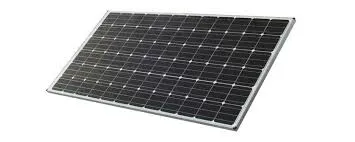Factors Affecting Solar Panel Efficiency During Winter Months
The Efficiency of Solar Panels in Winter
As the world shifts towards renewable energy sources, solar panels have emerged as a popular choice for harnessing sunlight to generate electricity. However, many people often wonder about the efficiency of solar panels in winter months when sunlight is limited, and cold weather conditions prevail. This article delves into the factors affecting solar panel efficiency during winter, the misconceptions surrounding their performance, and the benefits of solar energy even in colder climates.
One of the primary concerns regarding solar panel efficiency in winter is the amount of sunlight available. It is true that days are shorter, and the sun's angle is lower in the sky, resulting in less direct sunlight reaching the panels. However, solar panels can still operate effectively under cloudy or overcast conditions. In fact, many modern solar panels are designed to capture diffuse sunlight, meaning they can generate electricity even on gray days. Research shows that solar panels can still achieve efficiency levels of around 30% to 60% of their rated capacity during such conditions.
Another common misconception is that cold temperatures negatively impact solar panel performance. Interestingly, solar panels tend to operate more efficiently in cooler conditions. High temperatures can cause panels to overheat, leading to a drop in efficiency. In winter, although the general output may be lower due to less sunlight, the cooler temperatures can help maintain optimal performance levels for solar cells. This is an essential consideration for regions that experience snowy winters.
efficiency of solar panels in winter

Moreover, the accumulating snow on solar panels can also influence efficiency. While a thick layer of snow can obscure the panels and reduce their ability to generate electricity, this issue is often temporary. Snow tends to slide off solar panels due to their smooth surface and tilt angle, allowing sunlight to penetrate once conditions improve. In addition, the presence of snow can reflect sunlight, potentially enhancing the overall energy yield when combined with direct sunlight.
Another benefit of solar energy in the winter is the reduction in energy demand associated with heating. Many households rely on electricity for heating purposes in winter. By generating their own solar electricity, homeowners can offset some of their energy costs, making solar energy an attractive option year-round. Moreover, with advances in battery technology and energy storage solutions, homeowners can store excess energy produced during summer months to use during winter, further enhancing self-sufficiency.
In summary, the efficiency of solar panels in winter is a complex but manageable concern. While the amount of sunlight may be reduced during colder months, the physics of solar panels allows them to function efficiently even in less than ideal conditions. The cooler temperatures can enhance performance, and with the right setup, homeowners can still benefit significantly from solar energy throughout the winter. As the technology continues to advance, solar energy will play an increasingly vital role in achieving sustainability and reducing dependence on fossil fuels, even in the chilliest of seasons.
-
Unlocking Energy Freedom with the Off Grid Solar InverterNewsJun.06,2025
-
Unlock More Solar Power with a High-Efficiency Bifacial Solar PanelNewsJun.06,2025
-
Power Your Future with High-Efficiency Monocrystalline Solar PanelsNewsJun.06,2025
-
Next-Gen Solar Power Starts with Micro Solar InvertersNewsJun.06,2025
-
Harnessing Peak Efficiency with the On Grid Solar InverterNewsJun.06,2025
-
Discover Unmatched Efficiency with the Latest String Solar InverterNewsJun.06,2025







